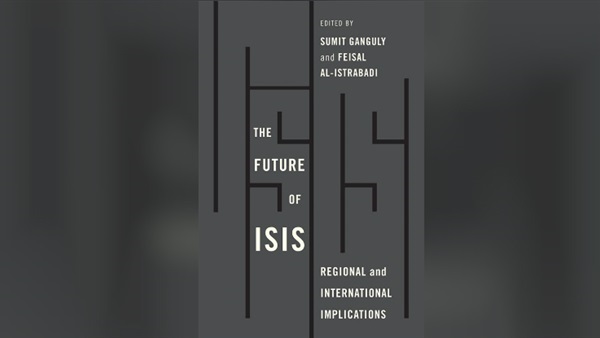Daesh regional future; recruiting Tehran for terrorist backfire

Since its emergence on the international
scene, the Daesh terrorist organization has occupied a wide space in the
interests of researchers and politicians, especially with its increasing
violence and brutality, as it takes over vast areas of the Middle East.
With a recent loss of land, coupled with the
United States' declaration of deregulation, most analyzes and studies tended to
refute the potential destinations of the elements of the organization, the
geographic locations to be received, as well as the future impacts, regional
and strategic implications of its activity.
One of the most prominent of these analyzes is
what was presented in the recently published English book, The Future of
Regional Advocacy and International Implications, which was written by Iraqi
politician Faisal Al-Istrabadi, a professor of international law and diplomacy.
He has served as Ambassador and Representative
of Iraq to the United Nations from 2004 to 2007. He was co-authored by Sumit
Ganguly, Professor of Political Science at the University of Indiana, USA.
A troubled ideology
The book sheds some light on the factors and
vocabulary that make the organization a tool to stir up panic and chaos in the
world, despite the ongoing elimination allegations.
The authors believe that 2017, which saw the
declaration of the Iraqi forces regaining land seized by Daesh, and the
subsequent fierce battles against organized camps in Syria, ended with media
reports about the failure of the group.
According to the book, it is too early to
claim that the world will not witness branches or new extreme phenomena in the
near future, but it is likely that the current terrorist group will change in a
dramatic way as a response to the changing global political scene, and
therefore will remain so critical imperative for researchers and those
interested in extremist groups file.
Defective strategies
The counter-strategies of Daesh and other
radical groups will not become serious without understanding the range of ideas
and beliefs that contribute to bringing more elements to belonging to these
groups, particularly the author's view of reformulating the founding ideas of
political Islam groups.
This is what emerged with the term Caliphate
adopted by the extremist group since its emergence in 2014 to symbolize the
existence of a religious symbol lost its luster since the fall of the Ottoman
Empire in 1924, and in light of that claims the group is the only political
entity that represents Muslims.
Destinations
Moreover, the author believes that the failure
of international intelligence agencies to predict their ascendancy and their
insistence that Al-Qaeda is the most dangerous threat in the world is a serious
threat that complicates negative effects of a promising future on the
international community.
The writer referred to the difficult
circumstances surrounding the situation in Syria and Iraq during the emergence
of Daesh on their land, and the intervention of international powers in the
political game in the region, such as the roles played by Tehran to build
bridges of communication, and develop its influence, and to show itself as
superpowers in the international community.







